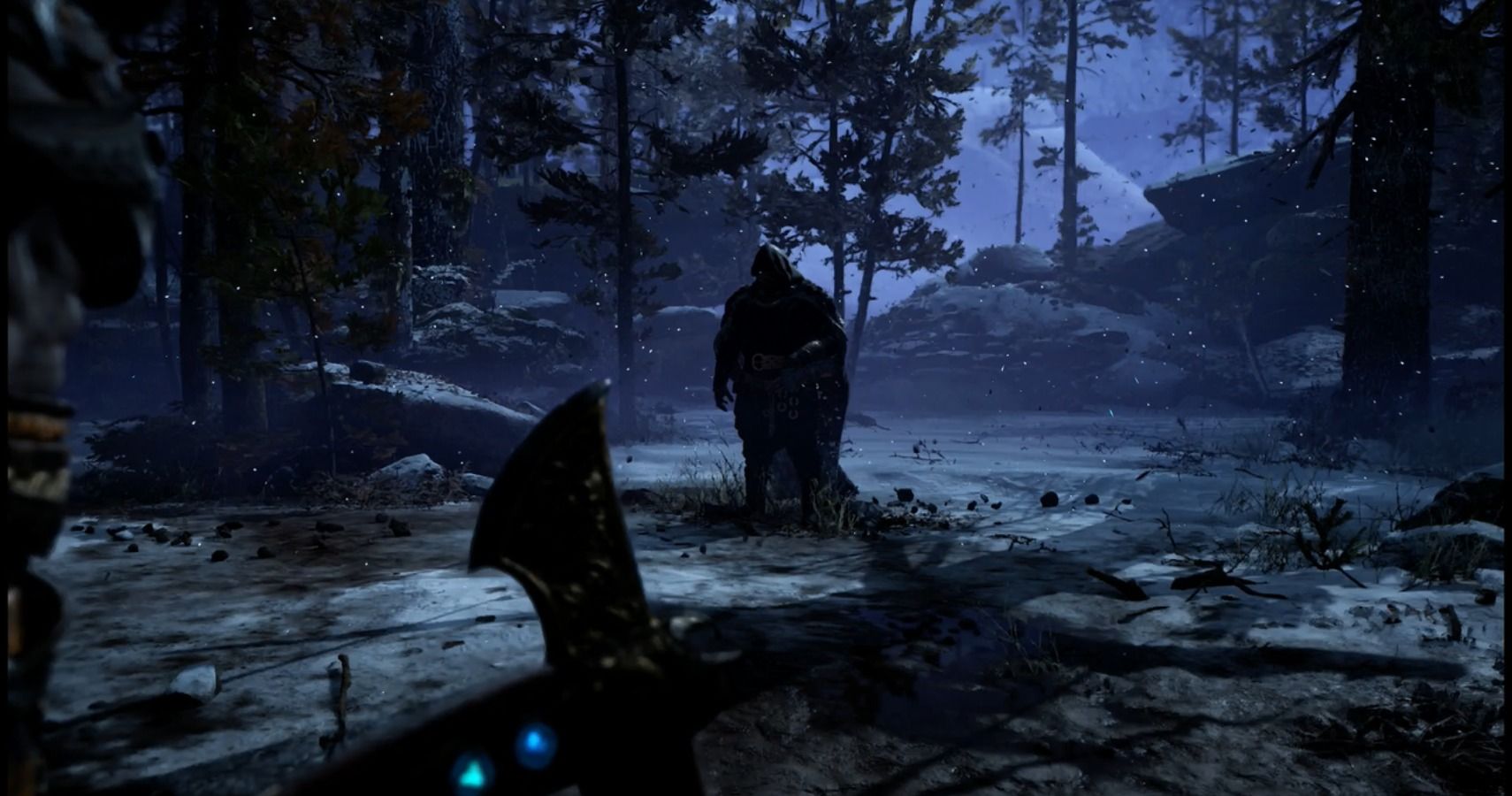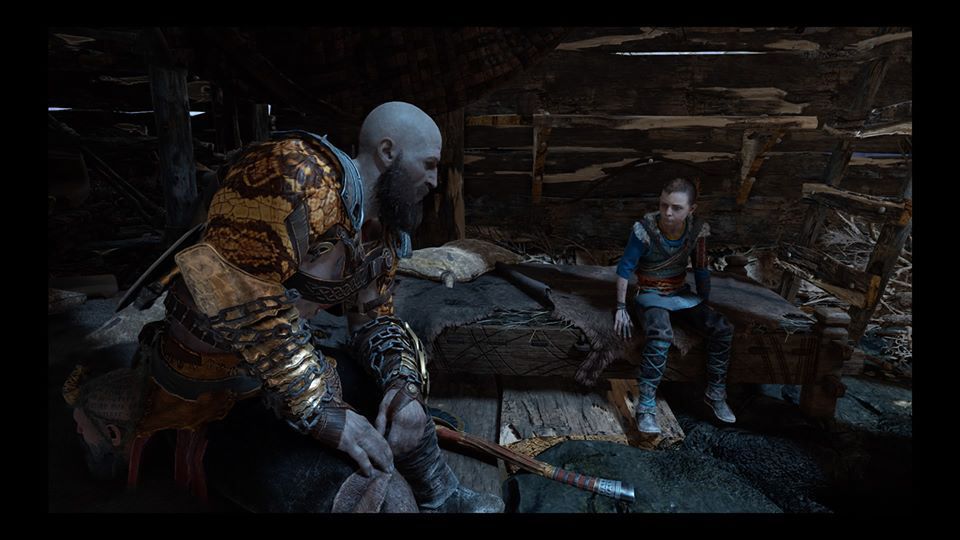Popular culture has conditioned us to think that the gods are our friends - yes, I’m talking about the MCU. Loki’s a bad guy, sure… but is he? He always redeems himself and people were practically begging for him to be brought back after reversing the snap in Endgame, despite the fact he got clobbered long before it. I love Tom Hiddleston’s portrayal of the god of mischief, but it’s not all that accurate aside from a few throwaway references to some particularly well-known Norse myths. Similarly, Chris Hemsworth’s Thor is my favourite character in the entire MCU - but he’s woefully inaccurate when compared to the original (yes, I know the superhero version is different, but lots of other people don’t).
God of War depicts gods in a different light. The original three games portrayed the Greek pantheon for the violent and selfish beings they are, with Kratos perhaps being the most violent and selfish deity of all. The literal god of war - separate to Ares - Kratos killed cousins, siblings, and his own father out of his unwavering desire to purge the planet of divinity. God of War (2018) shows us a very different take on this character - although not nearly as different as some people seem to believe. That’s why I’m so excited for Thor to come into the fray in God of War: Ragnarok: because the actual Thor is a complete and utter bastard.
We’ve already seen how God of War’s depiction of the gods in Kratos’ latest adventure is pretty different to what you might find in other cultural artefacts. If you’ve ever had a browse through the Poetic Edda or Prose Edda, you’ll know that Norse gods were both feared and revered. They were less interested in ordinary people than their Greek counterparts, but that goes two ways - not only were they not bothered about whether Tom down the road worshipped them, they couldn’t give two shits about whether or not they accidentally smashed his house to bits in a drunken stupor. For all of the animated and lively versions of the Greek pantheon we’ve had across media, it almost pains me to see how woefully underappreciated some of the funnier, more mischievous bits of Norse mythology are - if you want to know more, read Neil Gaiman’s book about, which is literally just called Norse Mythology.
But yeah, back to Thor. We already received some details about Thor in 2018’s God of War, namely when we went up against his sons, Magni and Modi. The former is killed in a fight against Kratos and Atreus, which is our first clue pertaining to Thor’s eventual intervention before the infamous god of thunder even shows up. The latter is purportedly viciously beaten upon his return to Asgard for leaving his brother to die - Thor isn’t too pleased about the fact his firstborn died so meaninglessly.
Then we get that now famous post-credits scene, where a hooded figure stands waiting outside Kratos’ house. You’d guess it was Thor from foreshadowing alone, although the presence of Mjolnir in the shot unequivocally confirms the fact. I know Ragnarok doesn’t necessarily need to start at this point and could devote five or ten hours to developing Kratos and Atreus’ relationship prior to it. However, given how good The Stranger’s fight is at the beginning of the first game, having Kratos take on Thor in the exact same location at the start of the second one would make for some amazing narrative mirroring. I’d actually prefer if Kratos dealt with Thor quickly or got brutally beaten up, though - having the exact same narrative cadence as The Stranger, who you fight a few times and eventually defeat near the end of the game, would be a bit too predictable and easy.
That’s where things get interesting. While I’d appreciate Sony Santa Monica saying, “You know what? Who the fudge is Thor?” I think it would be far better to include him here, but to keep him alive for the series’ denouement. I want to learn about this iteration of one of the most notorious characters in fiction, a god known for drinking seas of ale and wringing out his hangover with bloodsports. I don’t want an Endgame scenario where Kratos picks up Mjolnir like Captain America and winks at the camera. Don’t get me wrong, I like that scene! But it doesn’t work here, with this version of Thor, who is a bastard that is as close to all-powerful as you can become. Sure, papa Odin is probably a bit wiser and can do some cool stuff with ravens, but Thor makes his dad look like a puny little weakling. He’s not the brightest spark - except for when he literally summons lightning - but he’s a formidable foe who purportedly took down Ymir himself, turning a giant’s rotting carcass into Midgard, or the world as we know it. Why did he do this, you ask? For fun. We all know the Aesir hate the jotunn - something that Atreus’ true parentage and upbringing will almost certainly play into in a nuanced and fascinating way.
In case you haven’t realized by now, I’m a big Norse mythology buff. I love it, and although I recognize people think we’re getting too many games centered around it - God of War, Hellblade, Valheim, and Assassin’s Creed Valhalla - I think clever adaptations of it still have a well-earned place in contemporary storytelling. God of War’s depiction of Baldr was amazing, its iteration on the traditional character of Freya was smart and well-versed, and its seamless integration of Norse nuance into ostensibly minor aspects of the game brought the whole world to life. Hell, even the fact Tyr is missing will likely count for something intriguing down the line, and getting to sail a small dinghy down Jormungandr’s gullet was about as close to a dream come true as a boat ride through the World Serpent’s oesophagus can be.
Now all we need is for Thor to truly become the bastard he was always meant to be. If the first game is anything to go by, I have full faith that Sony Santa Monica is going to pull that exact task off perfectly.


